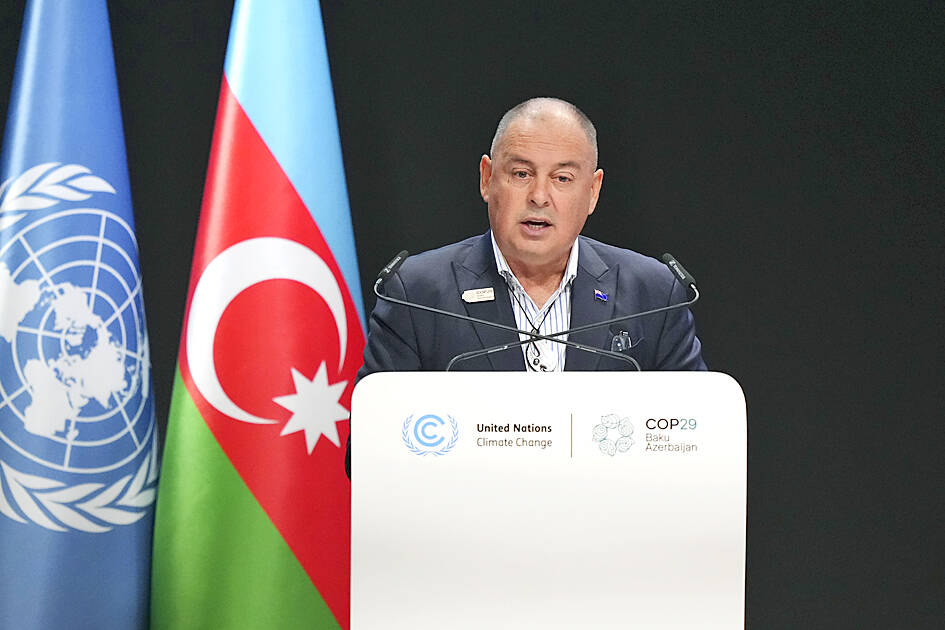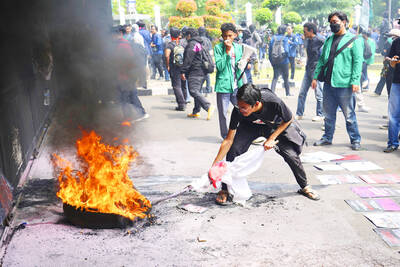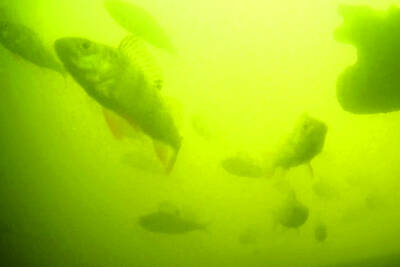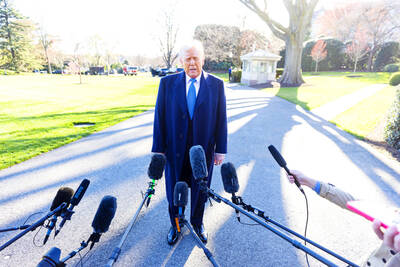The Cook Islands yesterday said it has struck a five-year agreement with China to cooperate in exploring and researching the Pacific nation’s seabed mineral riches.
A copy of the deal — signed during a state visit to China that has been criticized by former colonial ruler New Zealand — showed it covers working together in the “exploration and research of seabed mineral resources.”
A joint committee would oversee the partnership, which also includes seabed minerals-related training and technology transfer, logistics support, and deep-sea ecosystems research.

Photo: AP
The Cook Islands government said the memorandum of understanding, signed with China on Friday last week, did not involve any agreement to give an exploration or mining license.
Cook Islands Prime Minister Mark Brown had already released details of a broader partnership agreement signed during his state visit to China this month.
His office yesterday also published three others: the seabed minerals deal; a maritime industries agreement; and a Chinese development aid grant of 20 million yuan (US$2.76 million).
The self-governing Cook Islands, a country of 17,000 people, has a “free association” relationship with New Zealand, which provides budgetary assistance as well as helping on foreign affairs and defense.
Cook Islanders hold New Zealand citizenship.
Brown said the seabed minerals deal supported the partnership pact he signed in China for the two countries to cooperate in trade, investment and the seabed minerals sector.
“Our seabed minerals section remains under strict regulatory oversight, ensuring that all decisions are made transparently and in the best interest of the Cook Islands and its people,” he said in a statement.
New Zealand has already accused the Cook Islands government of a lack of consultation and transparency over the wider partnership agreement with China.
It has demanded to see all the agreements signed during Brown’s China trip.
“We note the release today of further agreements signed by the Governments of the Cook Islands and China,” said a spokesperson for New Zealand Minister of Foreign Affairs Winston Peters. “We will now analyze the contents of these agreements — focusing on the implications they have for New Zealand, the Cook Islands people and the Realm of New Zealand.”
New Zealand and its allies including Australia and the US have been unnerved by China’s growing diplomatic, economic and military influence in the strategically important Pacific.

The head of Shin Bet, Israel’s domestic intelligence agency, was sacked yesterday, days after Israeli Prime Minister Benjamin Netanyahu said he no longer trusts him, and fallout from a report on the Oct. 7, 2023, Hamas attack. “The Government unanimously approved Prime Minister Benjamin Netanyahu’s proposal to end ISA Director Ronen Bar’s term of office,” a statement said. He is to leave his post when his successor is appointed by April 10 at the latest, the statement said. Netanyahu on Sunday cited an “ongoing lack of trust” as the reason for moving to dismiss Bar, who joined the agency in 1993. Bar, meant to

Indonesia’s parliament yesterday amended a law to allow members of the military to hold more government roles, despite criticisms that it would expand the armed forces’ role in civilian affairs. The revision to the armed forces law, pushed mainly by Indonesian President Prabowo Subianto’s coalition, was aimed at expanding the military’s role beyond defense in a country long influenced by its armed forces. The amendment has sparked fears of a return to the era of former Indonesian president Suharto, who ex-general Prabowo once served and who used military figures to crack down on dissent. “Now it’s the time for us to ask the

The central Dutch city of Utrecht has installed a “fish doorbell” on a river lock that lets viewers of an online livestream alert authorities to fish being held up as they make their springtime migration to shallow spawning grounds. The idea is simple: An underwater camera at Utrecht’s Weerdsluis lock sends live footage to a Web site. When somebody watching the site sees a fish, they can click a button that sends a screenshot to organizers. When they see enough fish, they alert a water worker who opens the lock to let the fish swim through. Now in its fifth year, the

‘INCREDIBLY TROUBLESOME’: Hours after a judge questioned the legality of invoking a wartime power to deport immigrants, the president denied signing the proclamation The US on Friday said it was terminating the legal status of hundreds of thousands of immigrants, giving them weeks to leave the country. US President Donald Trump has pledged to carry out the largest deportation campaign in US history and curb immigration, mainly from Latin American nations. The order affects about 532,000 Cubans, Haitians, Nicaraguans and Venezuelans who came to the US under a scheme launched in October 2022 by Trump’s predecessor, Joe Biden, and expanded in January the following year. They would lose their legal protection 30 days after the US Department of Homeland Security’s order is published in the Federal